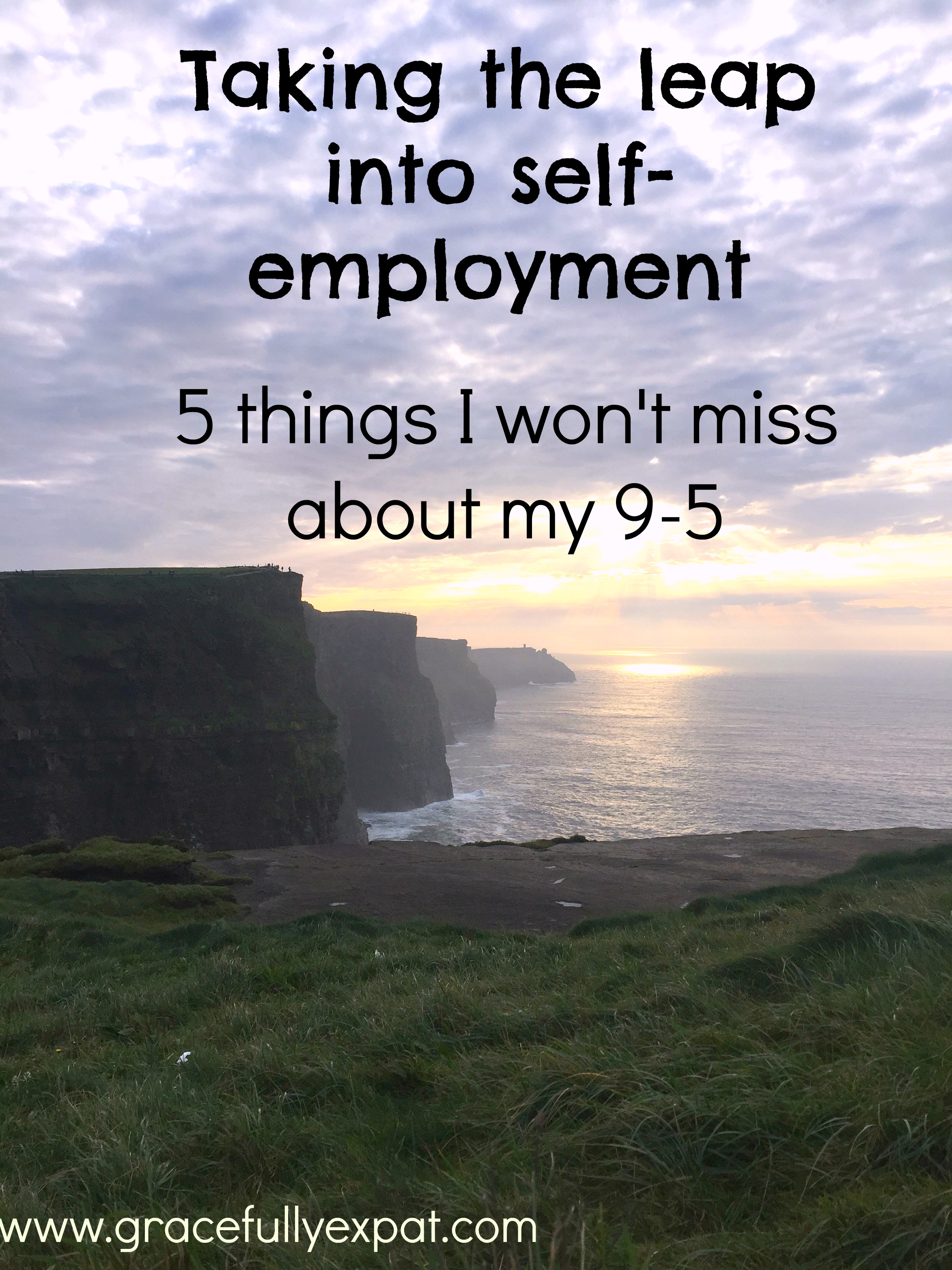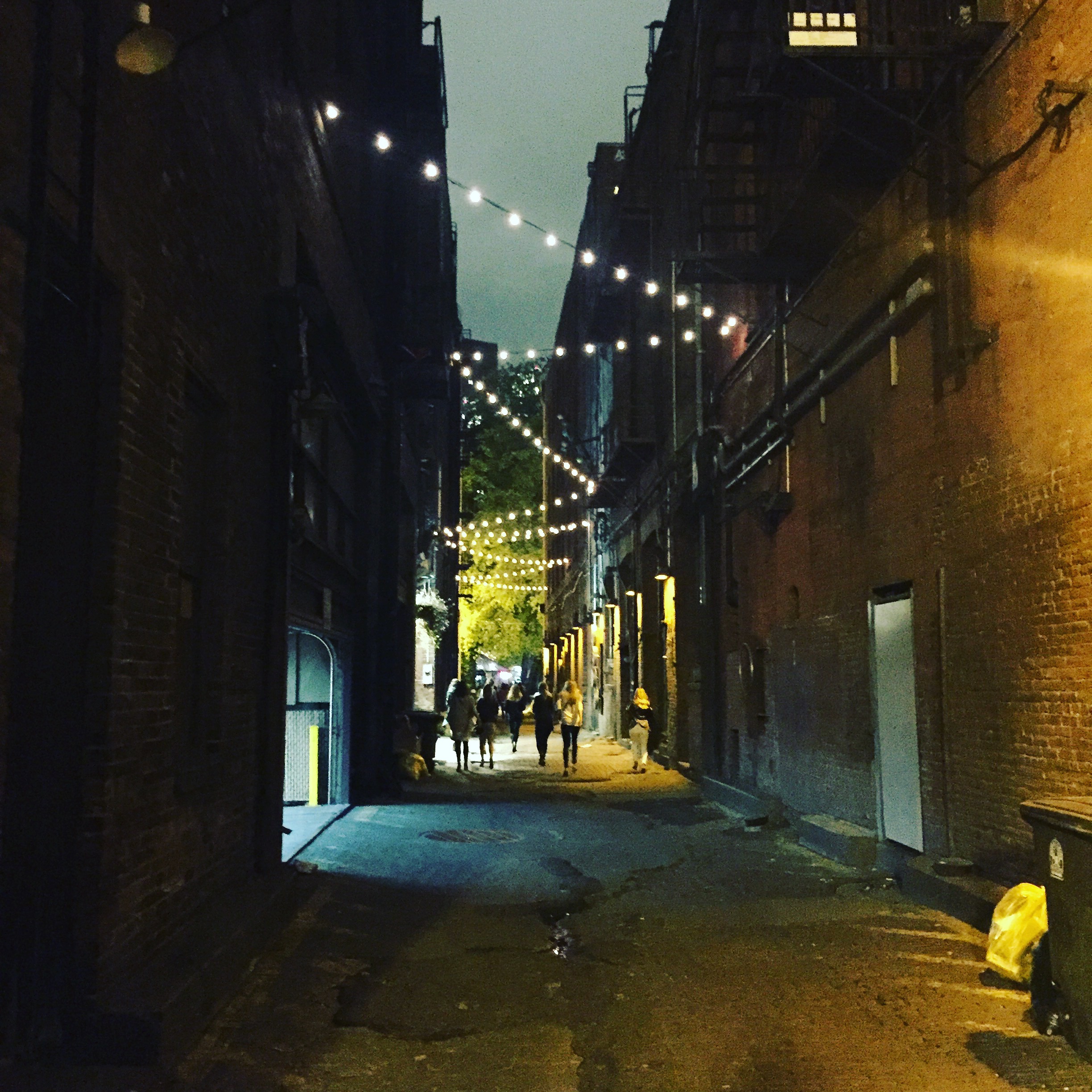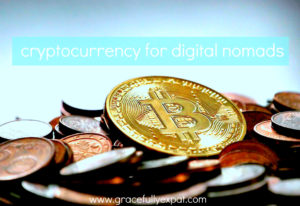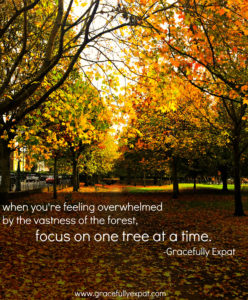One of my goals is to transition away from my current 9-5, salaried employment into freelancing and self-employment.
It’s something I’ve wanted to do for a long time, but had been stuck in the feeling of uncertainty. Much of that fear is understandable, such as wanting to ensure a steady income, and concerns about taxes, retirement savings, and health insurance. And, last but certainly not least, being an immigrant as I currently am: where in the world I’d be doing all this if (when) I’m no longer on an employer-sponsored work visa.
I can’t say that I’ve got all of those areas 100% figured out and optimised to my liking, but I’m working on it, and will write more about each area as I go. What I can say, however, is that when I allowed my focus to shift from what I’d be losing, to what I’d be gaining, I started to get really excited, instead of just scared. And for most of us, the amazing side benefit that comes with being excited about moving towards something, is that it inspires action. Fear breeds inaction, and it shuts down our minds to possibility and growth.
To laugh in the face of fear, here are 5 things I won’t miss about traditional, salaried employment:
-
Asking for permission: This is far and away my number one reason for becoming a freelancer. I can no longer tolerate having to ask permission to go visit my family, or having a limited quota of days in which to fit travel to see family as well as travel to the rest of the world. There simply isn’t enough time, people!
-
Silly rules: It’s the seemingly small things, so small they almost seem petty to complain about. And yet. For example, my current office doesn’t allow use of headphones at work. “Even if music really, really, honestly helps me focus and makes me more efficient on tough tasks?” I asked naively. Even then. I hate to say it, but failure to adapt to the needs of individuals is going to cause big companies to lose out on talent, especially in the millennial generation and those coming after us. The same is true of picky dress codes, and companies being unnecessarily inflexible on working hours and working locations. As it is, I look forward to optimising my efficiency by listening to music when I need to, once I’m working for myself.
-
Interruptions: Now, I know interruptions will still happen once I’m working for myself. And I’ll have to be vigilant about my own productivity. But something I won’t miss is being in the middle of something requiring deep focus, and being interrupted by something less important, that will cause me to have to essentially start over. I’m really looking forward to seeing what I can accomplish when I can focus on and prioritise the work that truly adds value.
-
Unhealthy habits: Health is one of the things I value and prioritise above most things. And I’m aware that it can sound ungrateful and tone-deaf to complain about the modern office environment, as compared to working conditions in much of the world and in most of human history. However, the fact remains that many offices today are not designed with health in mind. There’s too much sitting, and too much easy access to unhealthy convenience foods. I’ve gotten into a good habit of making my own lunches, but the hours of sitting are something I haven’t been able to successfully optimise my way out of in my current environment. When I am working for myself, I look forward to setting up a standing work area, or seeking one out if I’m working outside my home base.
-
Limited income: When you’re on a salary, your level of work doesn’t really directly correlate to your income. Salaries are typically reviewed once a year, and individual employees might have relatively little say in their pay rises. In the face of that, many smart career ladder-climbers will of course job-hop. That’s never really appealed to me for some reason, even though I completely understand the benefits. But for now, after years of feeling like I had relatively little control over my income, I’m really excited about the fact that working more hours will equal more income. It all comes back to having a greater measure of freedom and control.
Challenges and opportunities
I think in the near future, going freelance will be easier and smoother. I’m hopeful that the powers that be, on a global scale, will recognise that the gig economy is real, and will shift away from designing systems, from taxes to immigration to (most notably for Americans!) health insurance, solely with traditional employees in mind. The more of us that are out here, just doing it, will eventually have to shift the conversation.
Recently, a great piece on Levels.io made the all-too timely call for digital nomad work permits. Early retirement bloggers like Our Next Life write about the health care challenges for early retirees living in the US, and the exact same concerns are true for freelancers. Anecdotally, I have American friends who have specifically decided not to go into freelancing/self employment because of the difficulty and cost of finding non-employer provided health insurance. For now, the world simply isn’t set up for the solo-preneurs out there, and it certainly isn’t set up for digital nomads.
This is all to acknowledge that the challenges and uncertainties we face when choosing a path less travelled are real. But ultimately I’m optimistic about the possibilities and the freedom that will come with being self-employed. And I’m ready to take the leap of faith that I’ll be able to meet the challenges that come with it.








